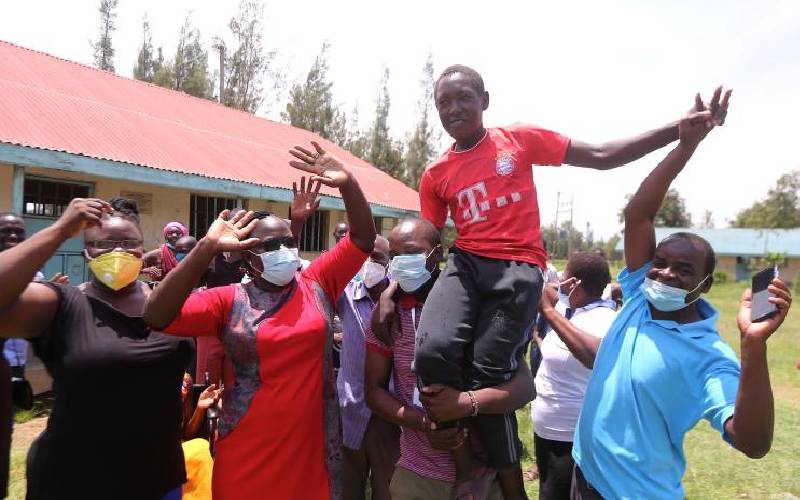
Meshark Nyesi a former street boy is celebrated by his teachers after emerging as the top candidate at Kibos Primary school in Kisumu with 410 marks in the 2020 KCPE. [Collins Oduor, Standard]
The recently released Kenya Certificate of Primary Education (KCPE) results have led me to have some very informative conversations with a few of the candidates as I sought to congratulate and encourage them on their performance. Today, I will share some insights I gathered from one such conversation with a few children who sat last year’s KCPE.